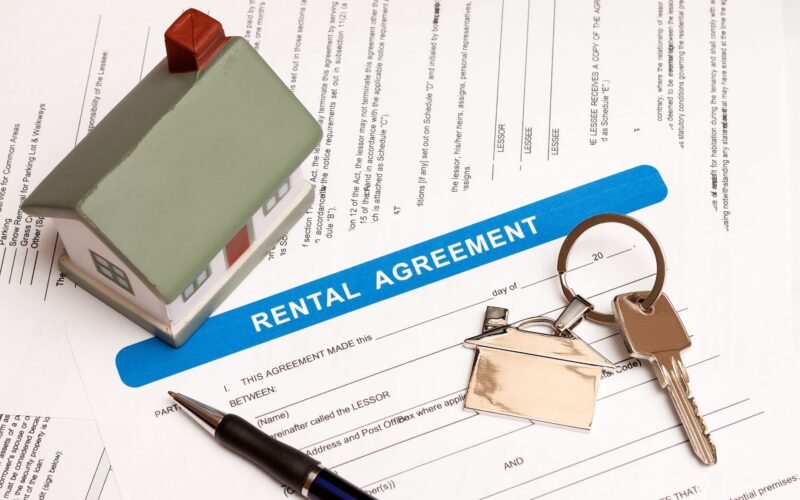|
Getting your Trinity Audio player ready...
|
Registering a rental property with your local government is a key step for landlords looking to operate legally and ensure compliance with local housing regulations. Many cities and counties require landlords to register their rental units to track housing inventory, ensure habitability standards, and manage taxes.
In this guide, we’ll walk through the steps of registering a rental property, the benefits of doing so, and how to stay compliant with local regulations.
Why Do You Need to Register a Rental Property?
Rental property registration is mandatory in many jurisdictions to ensure that rental properties meet health and safety standards and are properly taxed. Registration also helps local governments maintain accurate records of rental housing, enforce housing codes, and prevent overcrowding.
Benefits of Registering:
- Legal Compliance: Registering your property ensures you’re operating legally, which can protect you from fines or penalties.
- Tenant Safety: Registered properties often undergo inspections to ensure they meet safety standards, protecting your tenants from unsafe living conditions.
- Improved Oversight: Rental registration allows local governments to monitor housing availability and conditions, which can improve the overall rental market.
Tip – Not sure if you need a business license to rent property? Read our detailed guide.
When Is Rental Registration Required?
Rental registration requirements vary by city and state, but landlords typically need to register properties in the following scenarios:
1. Single-Family Rentals
In some cities, landlords must register even single-family homes that are rented out.
2. Multi-Family Properties
Registration is often required for multi-family properties such as duplexes, triplexes, and apartment buildings.
3. Short-Term Rentals
If you’re renting your property on a short-term basis (e.g., through Airbnb or VRBO), you may need to register the property and comply with additional regulations, such as occupancy limits and short-term rental permits.
Registering your property is part of staying compliant with local laws. Ensure you also have the necessary permits and certifications for landlords.
How to Register a Rental Property
The process of registering a rental property is relatively simple but varies based on location. Here’s a general step-by-step guide:
1. Check Local Requirements
Visit your city or county’s government website to review the rental registration requirements. Each jurisdiction has different rules about what types of properties must be registered.
2. Prepare Your Documentation
You’ll need to gather basic information about the property, including:
- Property address
- Ownership details
- Proof of property insurance
- Number of units (if applicable)
Some cities may also require a Certificate of Occupancy to ensure the property is habitable.
3. Submit the Application
Submit your rental registration application either online or in person, depending on your city’s process. You may be required to include additional documentation, such as a floor plan or property history.
4. Pay the Registration Fee
There is usually a fee associated with registering your property. Fees can range from $50 to several hundred dollars depending on the size of the property and the local jurisdiction.
5. Schedule an Inspection
In many cities, rental properties must pass a health and safety inspection before registration is approved. This inspection ensures that the property complies with local building codes, fire safety standards, and habitability laws.
Example Cities That Require Rental Registration
Here are a few examples of cities where landlords must register their rental properties:
- Chicago, IL: Landlords of multi-family buildings must register with the Department of Buildings. Failing to register can result in significant fines.
- Los Angeles, CA: Landlords must register rental units annually under the Rent Stabilization Ordinance (RSO), particularly in rent-controlled areas.
- New York City, NY: Rental property registration is required for properties with three or more units, and all properties are subject to regular inspections.
What Happens If You Don’t Register Your Rental Property?
Failing to register your rental property can result in several consequences:
1. Fines and Penalties
Landlords who fail to register their properties may face fines or penalties. In some cities, fines can range from $500 to $1,000 per day for non-compliance.
2. Loss of Rental Income
Some jurisdictions may prevent landlords from collecting rent or legally evicting tenants if the property isn’t registered. This can leave landlords with limited recourse if tenants refuse to pay rent or violate lease agreements.
3. Eviction of Tenants
In extreme cases, unregistered rental properties may be deemed illegal, forcing landlords to evict tenants until the property is brought into compliance with local laws.
How to Stay Compliant with Local Rental Laws
Staying compliant with rental registration requirements is crucial for long-term success as a landlord. Here’s how to ensure your rental business stays on the right side of the law:
1. Renew Registration Annually
Many cities require landlords to renew rental registration annually. Mark your calendar with renewal deadlines and keep track of any changes in the registration process.
2. Keep Up with Local Law Changes
Rental laws and regulations can change frequently. Stay informed about local housing ordinances by subscribing to updates from your city’s housing department or following rental property associations.
3. Document All Repairs and Maintenance
Keep detailed records of all property repairs, inspections, and maintenance. This will not only help you stay compliant with local laws but also provide documentation in the event of a legal dispute.
Tip – When registering your property, make sure it adheres to local zoning regulations. For more information, read about the impact of zoning laws on rental properties.
Frequently Asked Questions About Rental Property Registration
Do I need to register a single-family home if I rent it out?
It depends on your city’s regulations. In some areas, single-family homes are exempt from registration, while in others, registration is required for all rental properties.
How often do I need to register my rental property?
Many cities require annual registration, but some may offer multi-year registration options.
What happens if my rental property fails the inspection?
If your rental property fails the health and safety inspection, you will need to address the issues and schedule a re-inspection before completing the registration process.
Conclusion
Registering your rental property with your local government is an important step in ensuring legal compliance and protecting your investment. The process varies by city, but it typically involves submitting an application, paying a fee, and passing a safety inspection.
By registering your property, you can operate as a landlord with peace of mind, knowing that your rental is safe and compliant with local regulations. Be sure to stay up-to-date on rental laws in your area and renew your registration as required.








